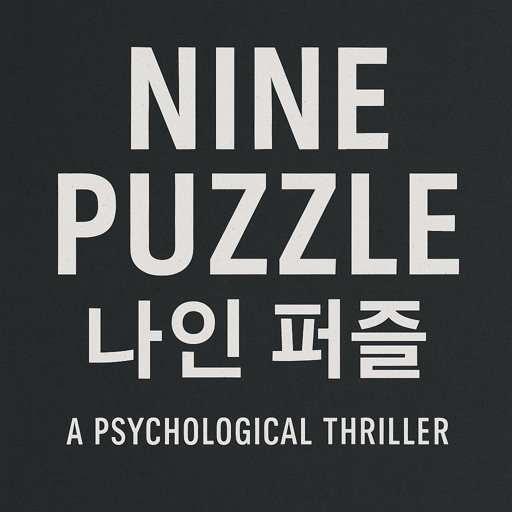Introduction: The Puzzle That Solves You
Korean dramas have proven time and again that they can do more than romance and family sagas. With Nine Puzzle (나인 퍼즐), the K-drama landscape adds a psychological crime thriller. It combines gripping storytelling, unreliable memory, and deep trauma into a carefully crafted narrative.
Starring Kim Da-mi. She is known for her emotionally intense roles. Nine Puzzle explores how far the human mind will go to protect itself. It also delves into what happens when it’s forced to remember.
Plot Summary: When Memory Becomes a Crime Scene
The drama opens with Lee Na-bi, a brilliant criminal profiler at the National Forensic Service. But Na-bi is not just any profiler. She’s the sole witness. She is also a suspect in a brutal murder that occurred ten years ago. When she was a teenager, police found her at the crime scene of her cousin’s death. She was covered in blood but had no recollection of what happened.
Now, a copycat murder reopens the unsolved case. Na-bi must confront her repressed memories. She works alongside detectives. Together, they aim to catch a killer who seems to know her darkest secrets.
As the investigation unfolds, viewers are taken through a complex web of distorted memory, psychological trauma, and buried truths. These are framed as pieces of a larger puzzle. Only Na-bi can solve this puzzle—if she dares to.
Key Themes: Trauma, Truth, and the Unconscious Mind
1. Memory as a Defense Mechanism
At its core, Nine Puzzle deals with repressed trauma. Na-bi’s amnesia isn’t just a plot device—it’s a reflection of how the mind can fragment reality to survive unbearable truths.
2. The Puzzle Metaphor
Each episode reveals a “puzzle piece” in Na-bi’s past and the case itself. But the metaphor extends further. Viewers are left to assemble their own narrative. They question what is real and what is a psychological projection.
3. Guilt vs. Innocence
Na-bi’s inner conflict—“Did I do it?”—drives the emotional tension. The drama forces viewers to explore the gray areas of morality, where memory doesn’t always align with fact.
Lead Performance: Kim Da-mi’s Tour de Force
Kim Da-mi, who previously starred in Itaewon Class and The Witch, delivers one of her most mature and layered performances. Her portrayal of Na-bi is fragile yet determined, balancing emotional vulnerability with analytical precision.
She masterfully conveys the subtle shifts between Na-bi’s professional confidence and personal disorientation. Her expressions often say more than words—particularly in scenes where her mind battles against resurfacing memories.
This role confirms Kim Da-mi as one of Korea’s most versatile young actresses.
Supporting Cast & Characters
- Jin Seon-kyu as Detective Yoo, a cynical but principled investigator who distrusts Na-bi yet depends on her insight.
- Jung Eun-chae as Oh Ji-hye, Na-bi’s therapist and one of the few people who believes her.
- Park Hae-soo in a chilling guest role as a mysterious man connected to the original crime.
Each character is written with psychological depth, avoiding stereotypes and adding emotional complexity to the narrative.
Cinematic Elements: Visual and Narrative Precision
Director Yoon Jong-bin employs a nonlinear storytelling structure that mirrors the fragmented nature of Na-bi’s memory. Flashbacks bleed into present-day scenes, sometimes contradicting previous versions of events—intentionally disorienting the viewer.
The use of cold, muted color palettes and close-up shots intensifies the mood. Symbolic imagery (mirrors, shattered glass, blood-stained puzzle pieces) enhances the psychological atmosphere.
The sound design deserves praise. Quiet moments are loaded with tension. Subtle auditory cues often hint at Na-bi’s mental state.
Cultural and Social Context
While Nine Puzzle is a crime thriller, it also comments on:
- Mental health stigma in Korea, especially around trauma
- Women in law enforcement and science, navigating skepticism
- How institutions fail victims of childhood abuse and domestic violence
These undercurrents make the show emotionally resonant beyond the mystery, allowing viewers to connect with deeper societal themes.
Audience Reception and International Reach
Though Nine Puzzle leans cerebral, it has gained traction among:
- Fans of darker K-dramas like Beyond Evil, Flower of Evil, and Stranger
- Viewers who appreciate psychological thrillers with strong female leads
- Global audiences, thanks to subtitles and availability on major platforms like Netflix or Disney+
Critics praise it for its narrative structure, acting, and social relevance, though some casual viewers may find the pacing slow. For mystery lovers, however, the build-up is worth every second.
Final Thoughts: When the Last Piece Clicks
Nine Puzzle isn’t just about solving a murder—it’s about putting together the broken pieces of a person’s life. It challenges viewers to rethink what they know about memory, truth, and identity.
With its strong performances, sophisticated script, and haunting atmosphere, Nine Puzzle is a must-watch. It is perfect for anyone who enjoys intelligent, emotionally complex dramas. These are the shows that leave you thinking long after the credits roll.
